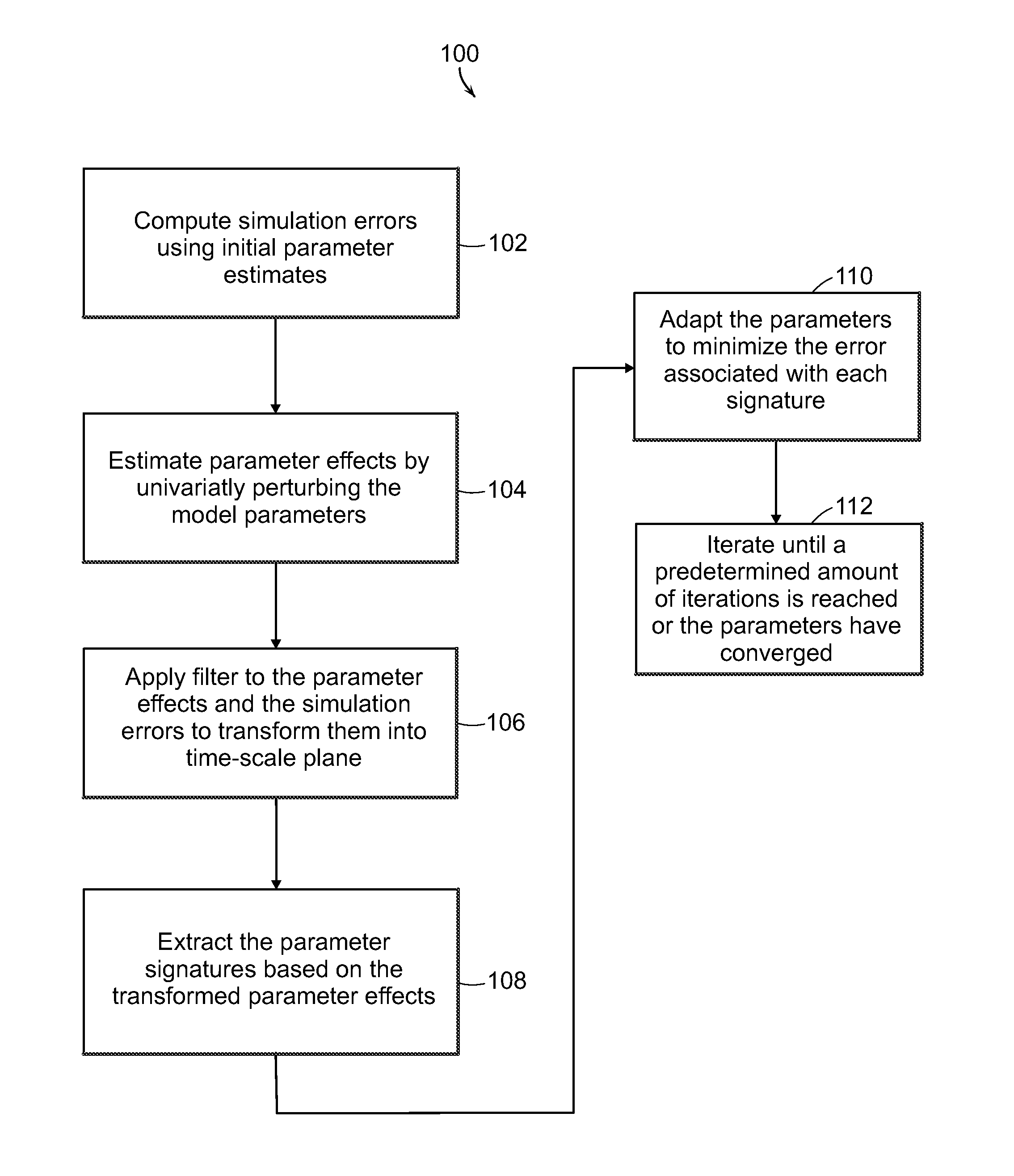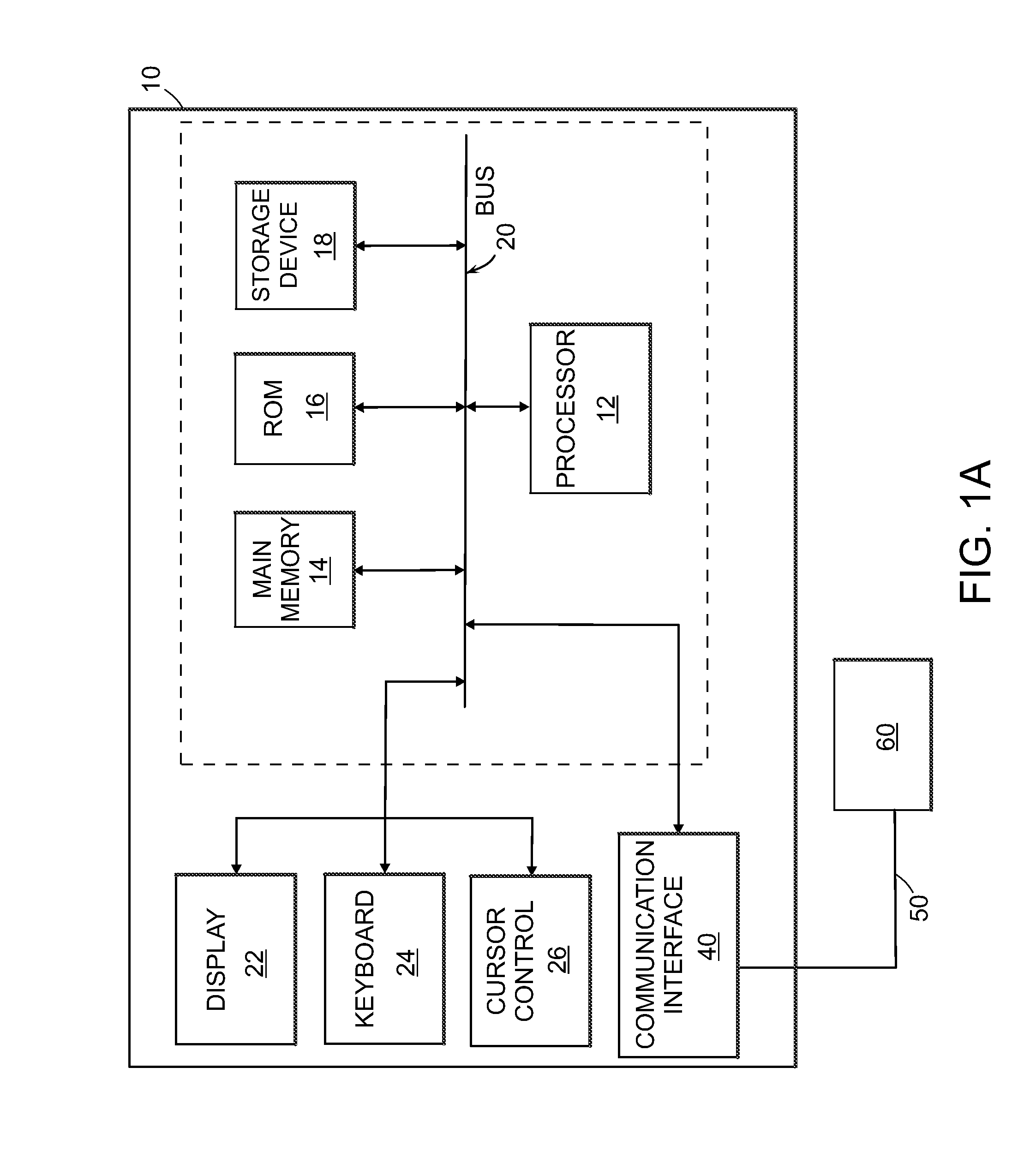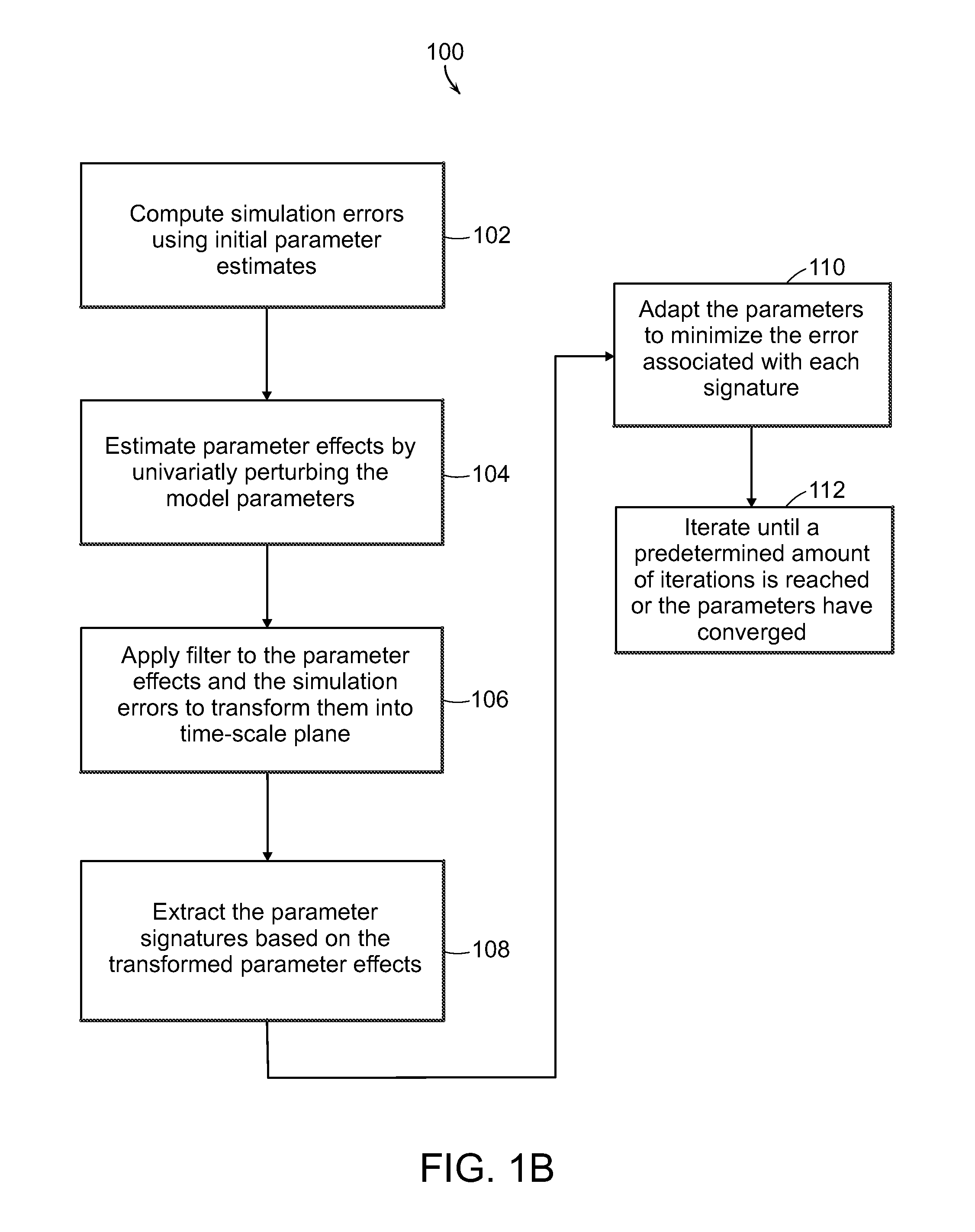Systems and methods for parameter adaptation
a parameter adaptation and parameter technology, applied in the field of system and method parameter adaptation, can solve the problem that not all model parameters are erroneous, and achieve the effect of accurate representation or model selection of the system, consistent and precise parameter estimation, and improved precision
- Summary
- Abstract
- Description
- Claims
- Application Information
AI Technical Summary
Benefits of technology
Problems solved by technology
Method used
Image
Examples
Embodiment Construction
[0058]Preferred embodiments of the present invention systems or data processors that perform the processing functions useful in determining the parameter values that can improve model performance. Such a system 10 is shown in connection with FIG. 1A. The system 10 can include a processor 12 that can interface with a main memory 14, a read-only memory (ROM) 16, or other storage device or medium 18 via a bus 20. A user interface, such as, a keyboard 24 or cursor control 26 can be used to program processor 12 or to access data stored in memory. A display 22 can be used with the graphical user interface described in FIG. 1B. A communication interface 40 can be used for a network interface or to provide a wired or wireless connection 50 to other computer systems with application 60 to access the parameter adaptation capabilities of the system 10. The processor 12 can be programmed to perform operations in accordance with the present invention using a programming language, such as MATLAB®...
PUM
 Login to View More
Login to View More Abstract
Description
Claims
Application Information
 Login to View More
Login to View More - R&D
- Intellectual Property
- Life Sciences
- Materials
- Tech Scout
- Unparalleled Data Quality
- Higher Quality Content
- 60% Fewer Hallucinations
Browse by: Latest US Patents, China's latest patents, Technical Efficacy Thesaurus, Application Domain, Technology Topic, Popular Technical Reports.
© 2025 PatSnap. All rights reserved.Legal|Privacy policy|Modern Slavery Act Transparency Statement|Sitemap|About US| Contact US: help@patsnap.com



